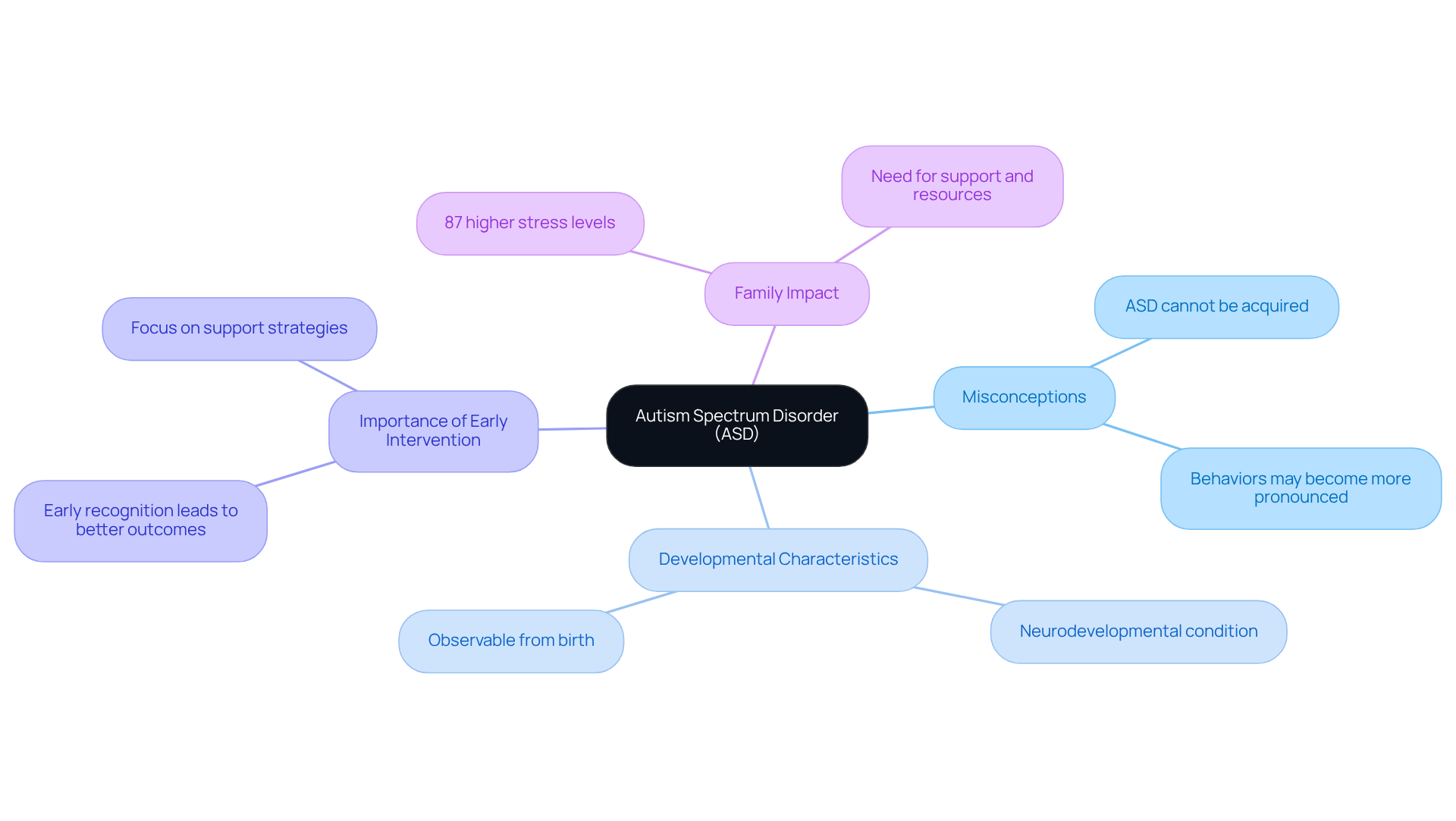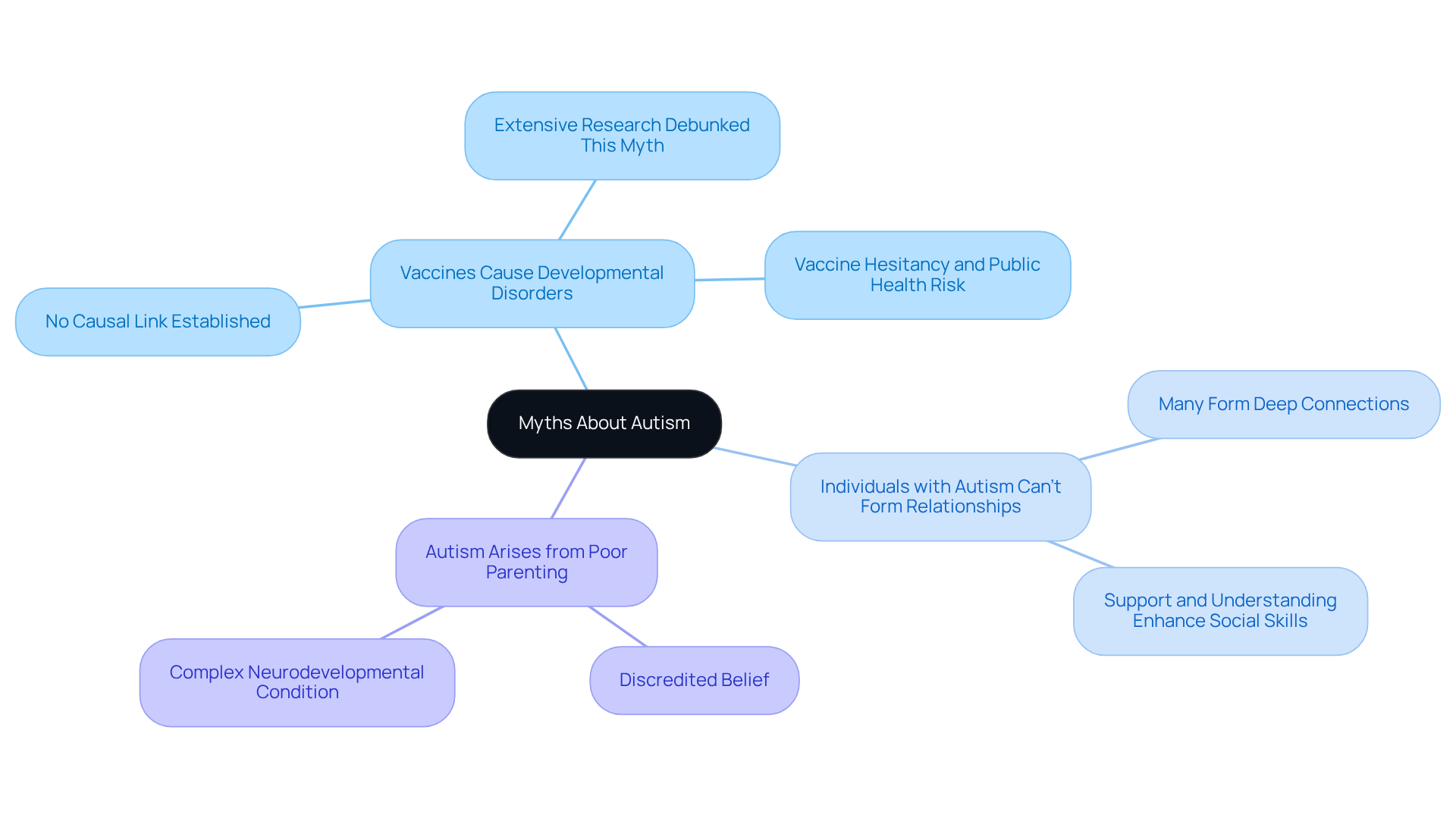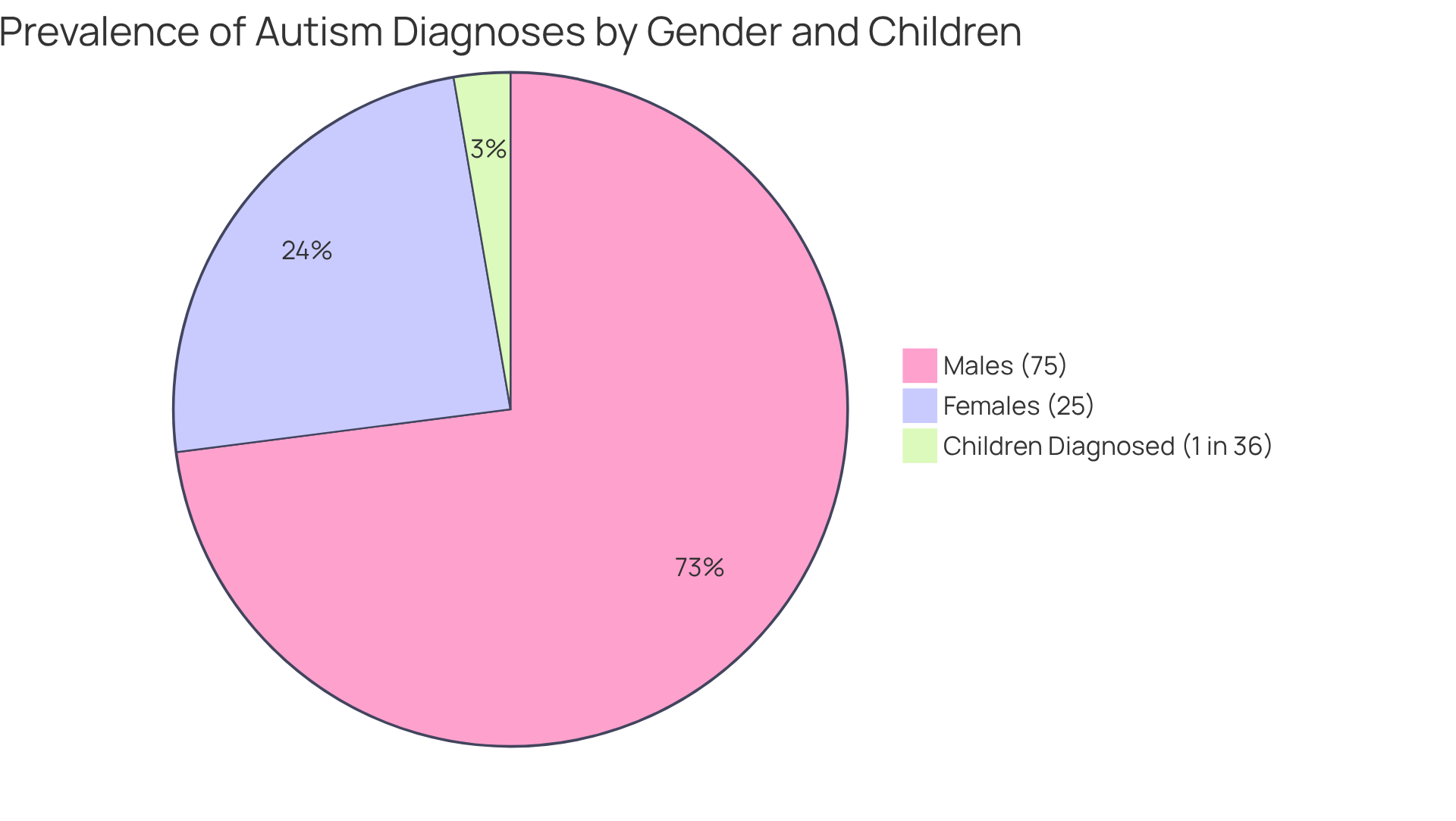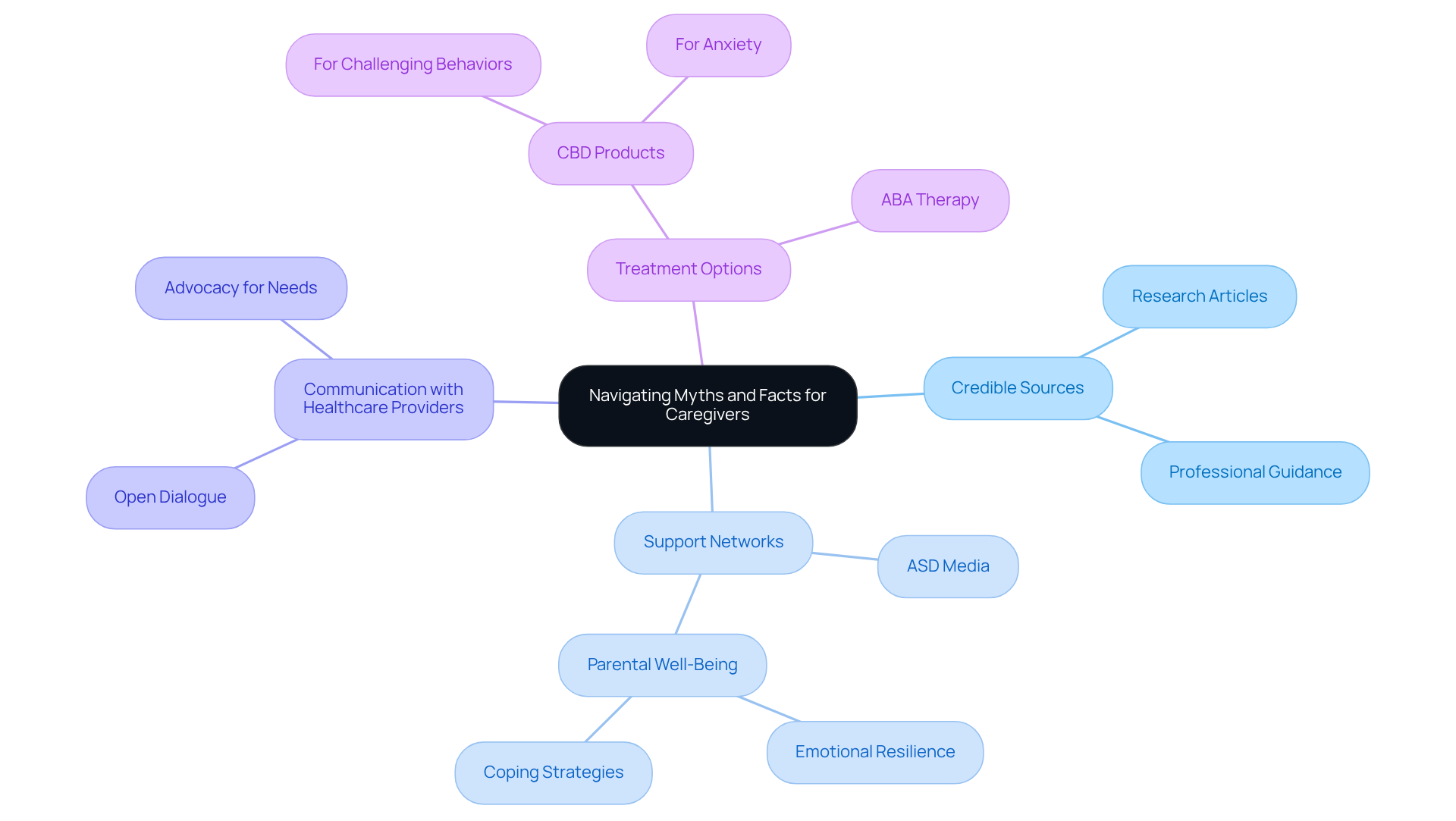Overview
This article sheds light on a common misconception: that Autism Spectrum Disorder (ASD) can be acquired. It emphasizes that ASD is a neurodevelopmental condition, typically evident from early childhood. Understanding this is crucial for parents, as it allows them to focus on providing the right support for their children rather than attributing the condition to external factors. The article further explains the biological basis of ASD, underscoring the importance of early diagnosis and intervention. By recognizing these aspects, parents can feel empowered to seek appropriate resources and support for their child's journey.
Introduction
The idea that Autism Spectrum Disorder (ASD) can be acquired has understandably caused confusion and concern among parents and caregivers. At its core, ASD is a neurodevelopmental condition that emerges early in life, dispelling the myth that it can develop from external influences or experiences. This article explores the myths surrounding autism, offering valuable insights that empower parents to differentiate between fact and fiction. As caregivers navigate a landscape filled with misinformation, how can they effectively advocate for their children and create a nurturing environment that fosters understanding and acceptance?
Exploring the Concept of Acquiring Autism
The misconception that Autism Spectrum Disorder (ASD) can be acquired often leads to the question, can you become autistic, which arises from a misunderstanding of its true nature. At its core, ASD is a neurodevelopmental condition that typically becomes apparent in early childhood, often before the age of three. Unlike conditions that may develop due to external factors or trauma, this developmental disorder is characterized by distinct variations in brain development and functioning that are observable from birth. As Temple Grandin poignantly expresses, "I am different, not less," highlighting the individuality of those on the spectrum.
While certain behaviors associated with ASD may become more noticeable as children grow and face increased social expectations or new environments, it raises the question: can you become autistic? Rather, these behaviors may simply become more pronounced over time. Recognizing this distinction is crucial for parents, as it allows them to concentrate on early intervention strategies and support rather than attributing the condition to external influences or experiences.
Research indicates that early recognition of a diagnosis related to autism spectrum disorder can lead to significantly improved outcomes, underscoring the importance of understanding this lifelong neurodevelopmental condition. Furthermore, families affected by developmental disorders report experiencing 87% higher levels of stress compared to average families, which highlights the pressing need for support and resources to navigate this challenging journey. By fostering understanding and seeking assistance, parents can create a nurturing environment that promotes growth and development for their children.

Debunking Common Myths About Autism
Many myths surrounding autism can create barriers to understanding and acceptance. One of the most prevalent misconceptions is the belief that vaccines lead to developmental disorders. However, extensive research has debunked this myth, demonstrating no causal link between vaccinations and the onset of developmental disorders. For instance, the occurrence of developmental disorders has increased significantly from 1 in 10,000 to roughly 1 in 54 youths, contributing to vaccine reluctance and misunderstandings. A thorough meta-analysis involving more than 1.2 million children verified that vaccines, including the MMR vaccine, do not elevate the risk of developmental disorders. This misinformation continues to influence public perception, despite overwhelming evidence to the contrary, posing a significant public health risk.
Another common misunderstanding is that individuals with autism are incapable of forming meaningful relationships. In reality, many individuals on the spectrum can and do form deep connections, though they may express their emotions and social interactions differently. Research indicates that with appropriate support and understanding, autistic individuals can cultivate friendships and engage socially, challenging the stereotype that they are inherently isolated.
Additionally, the outdated belief that autism arises from poor parenting has been thoroughly discredited. Studies have shown that autism is a complex neurodevelopmental condition influenced by a combination of genetic and environmental factors. Identifying these myths is crucial for parents, as it empowers them to challenge stereotypes and seek accurate information that supports their child's growth and development. Furthermore, the CDC recommends screening all children for Autism Spectrum Disorder (ASD) at 18 and 24 months, emphasizing the importance of early diagnosis and intervention. By understanding the truth behind these myths, parents can better advocate for their children and foster an environment of acceptance and support.

Understanding the Facts: What Science Says About Autism
Scientific research has greatly enhanced our understanding of this complex neurodevelopmental disorder, highlighting its influence from both genetic and environmental factors. It’s important to note that current estimates suggest this condition is about four times more prevalent in males than in females, with a male-to-female ratio of approximately 4:1, although some studies indicate it may be closer to 3:1. Alarmingly, the occurrence of this developmental disorder among children has risen significantly, with recent data revealing that 1 in 36 children in the U.S. is diagnosed with this condition.
Genetic factors play a substantial role in this condition, with heritability estimates ranging from 60% to 90%. Furthermore, environmental factors, such as maternal health issues during pregnancy, have been linked to an increased risk of developmental disorders. For instance, children with an older sibling on the spectrum face a 19% greater likelihood of receiving an autism-related diagnosis.
Timely identification and intervention are crucial for improving outcomes for children with autism. Evidence supports that therapies like Applied Behavior Analysis (ABA) can significantly enhance communication skills, social interactions, and adaptive behaviors. Understanding these facts empowers parents to prioritize early evaluations and interventions, paving the way for more favorable developmental paths for their children. By taking action now, families can foster a nurturing environment that encourages growth and development.

Implications for Parents and Advocates: Navigating Myths and Facts
Navigating the complexities of developmental disorders can be overwhelming for caregivers, especially when confronted with a plethora of conflicting information. To become effective advocates for their children, it is crucial for caregivers to prioritize credible sources and connect with professionals who specialize in autism. Engaging in support groups, such as those organized by ASD Media, offers invaluable insights and shared experiences that empower caregivers on their journey. Research indicates that participation in these assistance groups can significantly enhance parental well-being and reduce feelings of isolation. Many parents report improved coping strategies and emotional resilience. Notably, 67.1% of mothers of children with autism experience both depressive and anxiety symptoms, underscoring the emotional benefits of these support networks.
Caregivers should feel encouraged to actively engage with healthcare providers, asking questions and voicing concerns to ensure their children's unique needs are met. Open communication fosters teamwork, enabling guardians to create a nurturing environment that supports their children's growth and development. Additionally, with 36.9% of guardians administering CBD products to their autistic children primarily to address challenging behaviors, it is essential for caregivers to seek reliable resources for managing treatment options effectively. By utilizing accessible information and maintaining strong communication with experts, caregivers can navigate the challenges associated with developmental disorders, ultimately enhancing their children's quality of life. ASD Media is dedicated to empowering parents and professionals by providing essential strategies and support to help families manage the financial strain of raising a child with autism.

Conclusion
The idea that Autism Spectrum Disorder (ASD) can be acquired is a common misunderstanding that clouds the true essence of this neurodevelopmental condition. It's important to recognize that ASD does not stem from external factors or experiences; rather, it is defined by intrinsic differences in brain development that are observable from early childhood. Understanding that autism is not something one can 'catch' or develop later in life is crucial for parents striving to provide the best support for their children.
Throughout this article, we have debunked various myths surrounding autism. From the erroneous belief linking vaccines to developmental disorders to the misconception that individuals with autism are unable to form meaningful relationships, these myths obstruct understanding and acceptance. By highlighting the importance of early diagnosis and intervention, we underscore the significant roles that both genetic and environmental factors play in autism, encouraging parents to seek credible information and professional guidance.
Ultimately, creating an environment filled with understanding and support is vital for both children with autism and their families. By challenging misconceptions and advocating for awareness, parents can empower themselves and their children, paving the way for a future rich in acceptance and opportunities. Engaging with support networks and professionals not only enhances parental well-being but also fosters a nurturing atmosphere that encourages growth and development for children on the spectrum.
Frequently Asked Questions
Can Autism Spectrum Disorder (ASD) be acquired?
No, ASD is a neurodevelopmental condition that typically becomes apparent in early childhood and cannot be acquired. It is characterized by distinct variations in brain development and functioning that are observable from birth.
At what age does Autism Spectrum Disorder typically become noticeable?
ASD often becomes apparent in early childhood, usually before the age of three.
Do behaviors associated with ASD become more pronounced over time?
Yes, while certain behaviors may become more noticeable as children grow and face increased social expectations or new environments, this does not mean they become autistic; these behaviors may simply become more pronounced.
Why is it important for parents to understand the nature of ASD?
Understanding that ASD is a lifelong neurodevelopmental condition allows parents to focus on early intervention strategies and support, rather than attributing the condition to external influences or experiences.
What are the benefits of early recognition of ASD?
Early recognition of a diagnosis related to autism spectrum disorder can lead to significantly improved outcomes for the affected individuals.
How does having a child with a developmental disorder impact family stress levels?
Families affected by developmental disorders report experiencing 87% higher levels of stress compared to average families, highlighting the need for support and resources.
What can parents do to support their children with ASD?
By fostering understanding and seeking assistance, parents can create a nurturing environment that promotes growth and development for their children.




